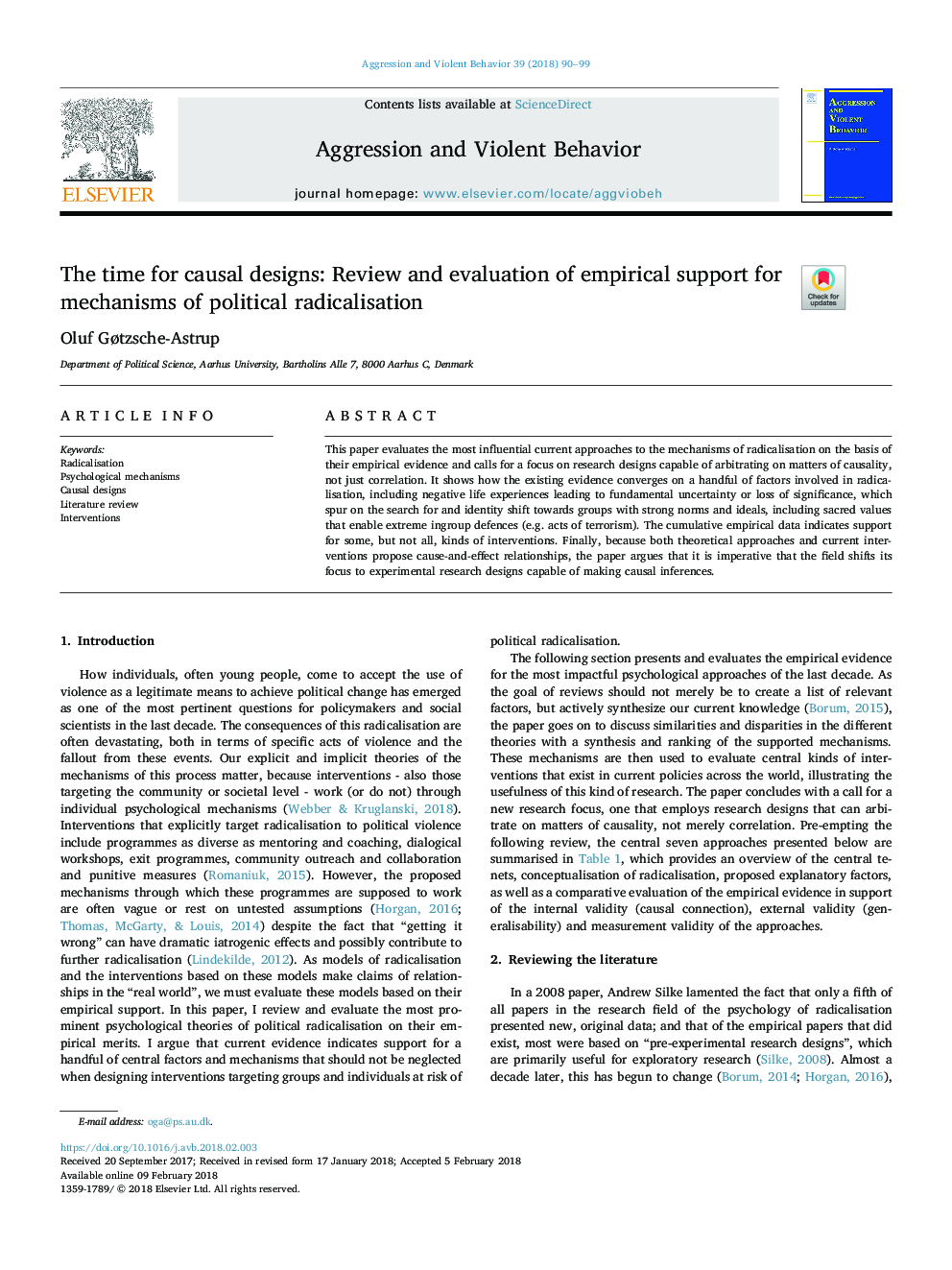| Article ID | Journal | Published Year | Pages | File Type |
|---|---|---|---|---|
| 6550032 | Aggression and Violent Behavior | 2018 | 10 Pages |
Abstract
This paper evaluates the most influential current approaches to the mechanisms of radicalisation on the basis of their empirical evidence and calls for a focus on research designs capable of arbitrating on matters of causality, not just correlation. It shows how the existing evidence converges on a handful of factors involved in radicalisation, including negative life experiences leading to fundamental uncertainty or loss of significance, which spur on the search for and identity shift towards groups with strong norms and ideals, including sacred values that enable extreme ingroup defences (e.g. acts of terrorism). The cumulative empirical data indicates support for some, but not all, kinds of interventions. Finally, because both theoretical approaches and current interventions propose cause-and-effect relationships, the paper argues that it is imperative that the field shifts its focus to experimental research designs capable of making causal inferences.
Related Topics
Health Sciences
Medicine and Dentistry
Forensic Medicine
Authors
Oluf Gøtzsche-Astrup,
